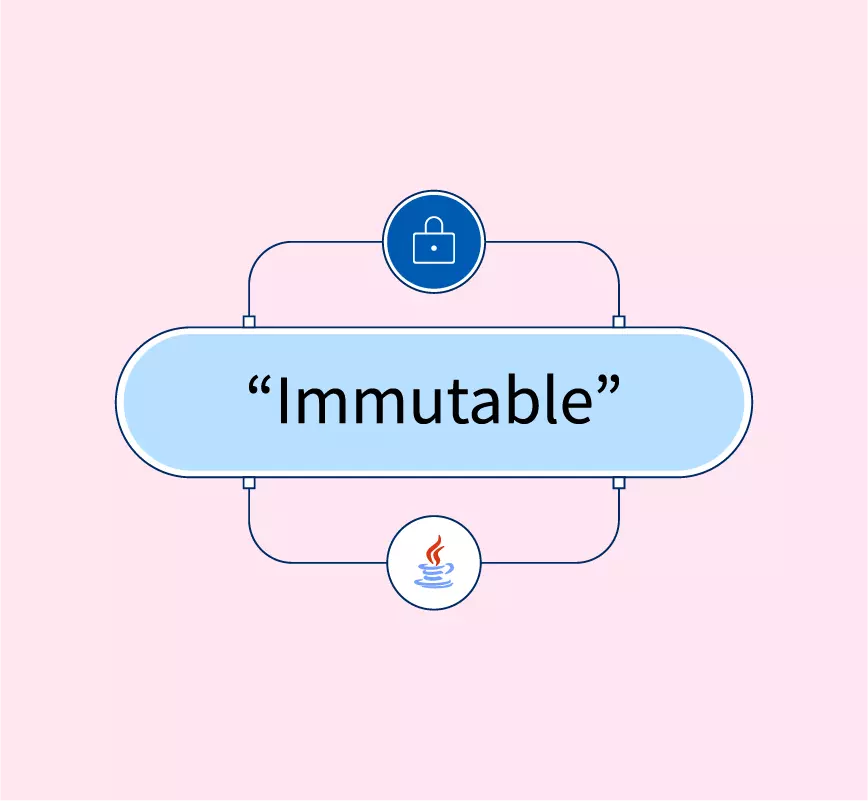Why Are Strings Immutable in Java? Comprehensive Guide for Beginners
Why Are Strings Immutable in Java? Comprehensive Guide for Beginners
Blog Article
What Is Unalterable Strings and Exactly How It Works
In the world of shows, comprehending the idea of immutable strings is paramount for creating protected and robust applications. Immutable strings refer to strings that can not be altered after they are developed, making certain information integrity and predictability within the code. This basic concept plays an essential function in various programs languages and offers a distinct strategy to handling data. By discovering the intricacies of exactly how unalterable strings operate, one can reveal a world of benefits and opportunities that can elevate the top quality and efficiency of software development.
The Fundamentals of Immutable Strings
Unalterable strings, as an essential principle in programs, are personality sequences that can not be changed as soon as they are created. This indicates that once a string is designated a worth, that value can not be altered. In languages like Python and Java, strings are immutable items, resulting in various ramifications in terms of memory management and information stability.
Among the essential benefits of unalterable strings is that they provide a complacency in information control. Since the web content of an immutable string can not be changed, it makes certain that the original data continues to be undamaged, reducing the danger of unintentional modifications during program execution (Why are strings immutable in Java?). This building additionally streamlines debugging procedures, as developers can rely on that as soon as a string is specified, its worth will certainly not be accidentally modified
In addition, immutable strings assist in reliable memory use. When a brand-new string is developed based on an existing one, instead of changing the original string, the new worth is saved individually. This approach improves performance by reducing memory fragmentation and simplifying memory allowance processes. In general, comprehending the fundamentals of immutable strings is important for grasping shows ideas and optimizing code effectiveness.
Advantages of Immutable Strings
Building upon the security and efficiency benefits of unalterable strings, their advantages encompass improving code dependability and streamlining concurrent programs tasks. By being unalterable, strings can not be customized after production, which gets rid of the risk of unintended modifications in the information they keep. This intrinsic immutability guarantees that when a string is created, its worth stays constant throughout the program's implementation, minimizing the opportunities of pests brought on by unanticipated changes.
Additionally, immutable strings add to code dependability by making it easier to reason concerning the state of a program. Considering that strings can not be altered, developers can rely on that a string will certainly always hold the same value, streamlining debugging and upkeep efforts. This predictability leads to a lot more steady and reliable codebases.

Execution in Programming Languages
Within numerous shows go now languages, the unification of unalterable strings is a fundamental element that influences just how data is managed and controlled within code structures. The implementation of immutable strings differs across various shows languages, with each language offering its own devices to sustain this principle.

In comparison, languages like C and C++ do not have built-in assistance for immutable strings. Developers in these languages must by hand execute immutability by imposing guidelines within their code to avoid straight adjustments to string things.
Finest Practices for Working With Unalterable Strings
When handling immutable strings in programming languages like Java and Python, adhering to finest methods ensures safe and effective information control. Among the key best practices is to make use of StringBuilder or StringBuffer as opposed to straight adjusting strings, specifically when handling considerable concatenation operations. These classes give mutable options for string control, aiding to avoid unneeded memory allotments and boosting efficiency.
Additionally, when working with sensitive data such as passwords or API tricks, it is critical to prevent keeping them as ordinary text in look these up unalterable strings. Making use of protected storage devices like char varieties or specialized libraries for managing delicate information aids minimize safety and security threats connected with immutable strings.
Real-world Applications and Examples
Checking out practical executions of immutable strings in different markets exposes their significant impact on data stability and system reliability. In the healthcare field, unalterable strings play an important role in making sure the protection and discretion of individual information. By avoiding unauthorized adjustments to delicate information such as clinical documents and prescriptions, immutable strings assist preserve conformity with strict privacy regulations like HIPAA.
Banks also profit from the unalterable nature of strings to improve the safety of customer information and deal records. Immutable strings aid prevent fraudulence and unapproved modifications to monetary details, providing a robust defense versus cyber threats and ensuring the depend on and self-confidence of customers.

Final Thought
In verdict, unalterable strings are fixed and unchangeable sequences of characters that offer benefits such as string safety and security and enhanced efficiency in shows. They are executed in various programs languages to make certain information honesty and security. Finest practices for working with unalterable strings include preventing straight modifications and making use of methods that return new string objects. Real-world applications of immutable strings include information security, caching, and string adjustment jobs.
Immutable strings refer to strings that can not be changed after they are created, guaranteeing data honesty and predictability within the code. When a brand-new string is produced based on an existing one, rather than changing the initial string, the new value is kept independently.In languages like Java and Python, strings are immutable by default, indicating that when a string item is created, its value can not be changed - Why are strings immutable in Java?. Finest methods for working with unalterable strings include staying clear of direct adjustments and making use of approaches that return new string objects. Real-world applications of unalterable strings consist of information security, caching, and string manipulation jobs
Report this page